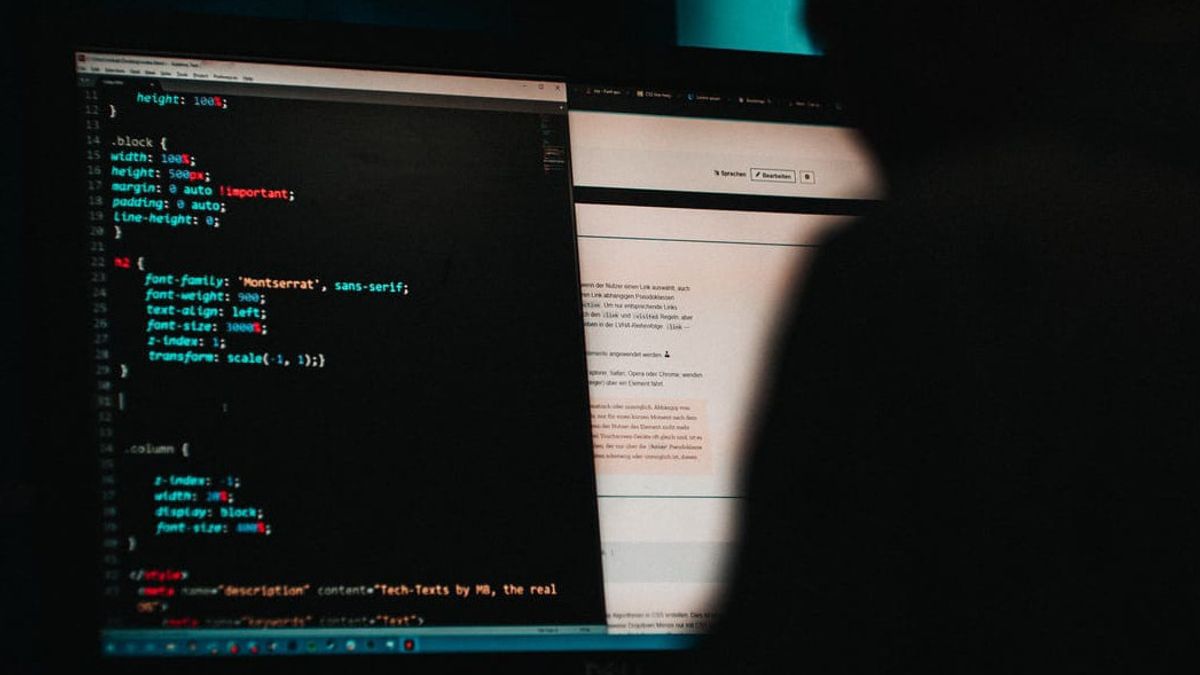JAKARTA - The world of technology is growing from time to time, it is undeniable that this progress has had a lot of positive impacts on life. However, the thing to worry about is that the more advanced the technology, the more cybercriminals there are.
Cyber criminals are often referred to as hackers. So what is a hacker and how do hackers work in our daily lives? VOI will cover that now.
What is HackerLaunching from Echosec, nowadays, the term hacker or in English known as "Hacker" is more often used to describe someone who finds and exploits weaknesses or vulnerabilities in computer systems. Hackers use these vulnerabilities to block system access, collect information, or gain access to more computers in the network.Hackers are also often referred to as people who break into computer systems.
The reasons for hackers to hack can vary, such as stealing or destroying data, disrupting services, and much more.
How Hackers Work?Hackers don't care whose personal information and credentials they get, as long as they can get a lot of information from their actions. Hackers usually carry out their actions by exploiting network security weaknesses to gain access, and the weaknesses can be technical or social.
According to Cisco, the technical flaw in question is that hackers can exploit software vulnerabilities or weak security practices to gain unauthorized access or inject malware, for example.
A social disadvantage is that hackers use social engineering to convince those with privileged access to a targeted system to click on a malicious link, open an infected file, or reveal personal information, thereby gaining access to a compromised infrastructure, such as phishing.
Dony Koesmandarin as Territory Manager, Kaspersky Indonesia said that cyber crime will not decrease, because of the unlimited number and its successors. "The more advanced the technology, the hackers will find new ways to carry out their actions," he said in a face-to-face meeting with the media on Tuesday, June 14.
Donny also said, you are wrong, if you think that hackers just sit quietly in front of the computer to commit crimes, because they will do hacking starting as easy as sharing fake links to higher hacking stages.
In fact, it is accurate to classify hacking as a general term for the activity behind most malicious cyberattacks on public, business, and government computing. In addition to social engineering and malvertising, common hacking techniques include:
Botnets are computer networks that run bots under the control of bot herders. Browser hijacks or Browser hijacking is a form of unwanted software that alters web browser settings without the user's permission, to inject unwanted advertisements into the user's browser. Denial of service (DDoS) attacks are a type of attack that involves sending large amounts of traffic from multiple sources to a service or website, with the intent to overwhelm it. Ransomware is a type of malware that prevents users from accessing their systems or personal files and demands a ransom payment to regain access. Rootkits are a set of tools that give a person the highest privileges in a system. Rootkits are very dangerous because they are designed to hide their presence on your device. Computing Trojans are defined as a type of malware that uses deception and social engineering to trick unsuspecting users into running seemingly harmless computer programs that harbor malicious ulterior motives. Viruses are a type of malware that attaches to other programs (such as documents), which can replicate and spread after someone first runs it on their system. Worms are a subset of Trojan malware that can spread or replicate themselves from one computer to another without human activation after breaking the system.The English, Chinese, Japanese, Arabic, and French versions are automatically generated by the AI. So there may still be inaccuracies in translating, please always see Indonesian as our main language. (system supported by DigitalSiber.id)













